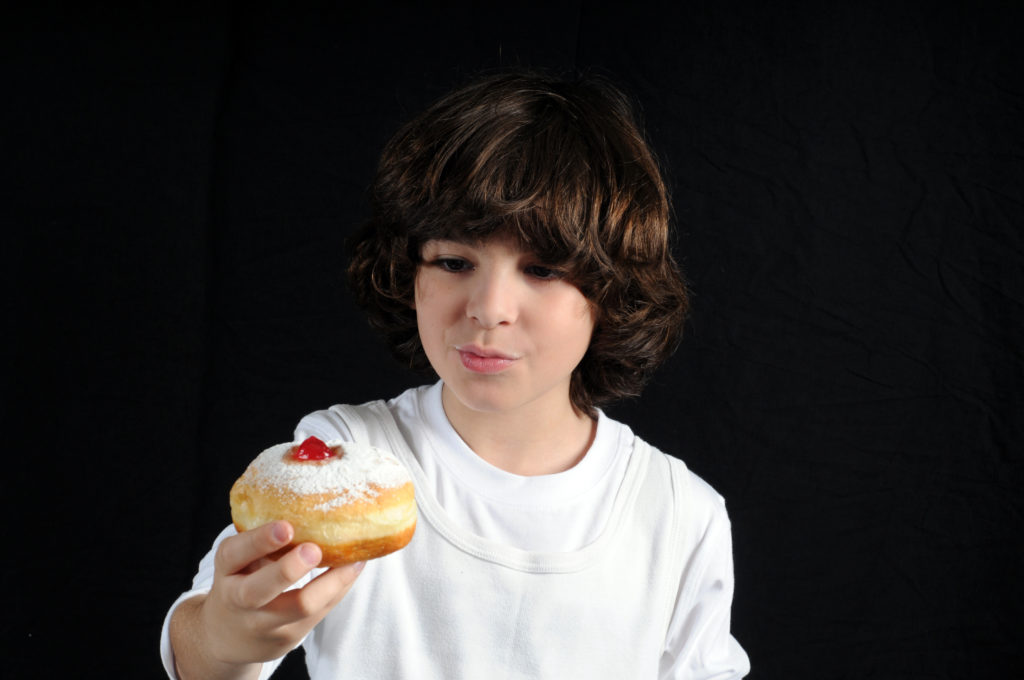
Though the results from Pew Research Center’s new study on Jewish identity were not surprising to Jewish professionals, some feel they highlight the importance of engaging Jewish community members in nontraditional ways.
On May 11, Pew released its first study on Jewish American identity since 2013. “Jewish Americans in 2020” found that 27% of the nation’s adult Jewish population identify as “Jewish of no religion” and instead identify as “Jewish ethnically, culturally or by family background and have a Jewish parent or were raised Jewish.”
The report, said Ralph Grunewald, the executive director of the Jewish Federation of Howard County, “comes out with a dozen or more indicators of what people who claim they’re Jewish feel makes them Jewish. It’s beyond religion. It is cultural. It is the news they read. It’s their affinity toward Israel. It’s the movies they watch, the books they read, the food they eat, by the way. That all connects them to their view of what makes them a Jew in America today.”
That is particularly true for adult Jews under 30, of whom 40% identify as “Jews of no religion.” Among adult Jews under 30, 17% of identify as Orthodox — with 11% identifying as haredim or ultra-Orthodox — while 29% identify as Reform and 8% as Conservative.
Young Jews in particular are experimenting with what it means to be Jewish and are searching for sources of inspiration beyond religious ceremony, Grunewald said.
“Our job at federation is to encourage that diversity, to encourage experimentation, by providing opportunities, perhaps through microgrants and alternative programming that has to be developed,” he said.
One area where Grunewald would have liked to see more information from the study is on trends around Black, LGBTQ and Asian Jews.
“The face of American Jewry is changing, and it behooves us as a Jewish community to understand the needs and the wants, the aspirations and concerns of all segments of the Jewish community,” he said.
Eyal Bor, Beth El Congregation of Baltimore’s director of education and director of its Rabbi Mark G. Loeb Center For Life Long Learning, agreed that the study highlights the need to reach out to those who connect to Judaism culturally.
As someone who works at a Conservative synagogue, he is also particularly concerned about what the study shows about this movement.
“What worries me is the fact that synagogues, especially the Conservative movement, are losing membership, except the Orthodox community,” Bor said. “When you look at the three movements overall, the movement that is bleeding the most, or that suffers from attrition the most, is the Conservative movement.”
In the absence of radical change, Bor warned, in the next 10 or 15 years the Conservative movement could face much harder challenges to keep its synagogues, clergy, Hebrew schools and students.
Despite that, Bor sees hope in the example his own synagogue was providing. By focusing on cultural programming that includes art, music and adult education, Beth El is better able to reach out and connect with members of the Jewish community who view their identity more in cultural terms, Bor said.
“At Beth El, we are a leading force in this country, in this movement, to still bring and engage and attract people from all the segments of the community,” he said.
Marc B. Terrill, president of The Associated: Jewish Federation of Baltimore, said the Pew study confirmed much of the information that The Associated found in its 2020 Baltimore Jewish Community Study.
“This data gives us valuable information as we build on The Associated network’s strategies to build a more welcoming Jewish community, to meet people where they are and to ensure they have a continuum of opportunities throughout a lifetime,” Terrill said in an email.
One difference in the new study from the 2013 one was the addition of a question on Chabad participation. The study found that 16% of Jewish adults in America often or sometimes participate in Chabad programs or services.
Rabbi Shmuel Kaplan, the director of Chabad-Lubavitch of the Maryland Region and a resident of Pikesville, said that while the Pew study has some value, he doesn’t believe it will change much for him.
“I’ve been in this area now for 47 years, and I’ve been doing this kind of work in the Jewish community, I feel this in my gut, or in the Yiddish in my kishka, I can tell you most of what you have there,” he said.
Kaplan said he felt the study fell short in defining who is a Jew, and he was disappointed that the study asked about cultural practices like eating Jewish foods but did not cover Torah study.
“Where do they have an analysis on whether people are exposed to Torah study,” Kaplan asked. “Judaism is built on Torah study. If one doesn’t become educated in the Torah, there’s no way Judaism, in any form survives.”
Kaplan does not expect the Pew survey to have any significant impact on how Chabad of Maryland conducts its activities in the future. He also views a lack of Jewish education as causing Jewish people to drift away from their religion.
“We are on the ground, trying to inspire people, reach people, teach people Judaism. … We know the task that we have, and we are focused on it,” he said.







